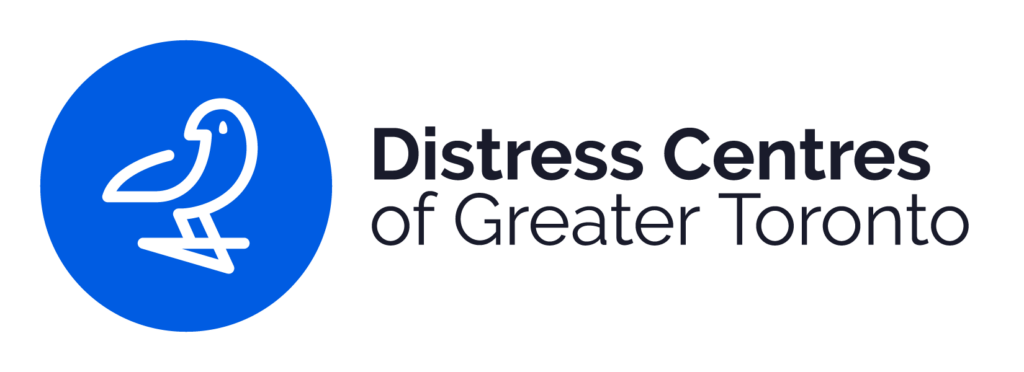Survivors of Suicide and Homicide Loss
Volunteer Program

Grief Support
Whether or not you have experience coping with grief, you can become a part of our Volunteer Grief Facilitator team and help those dealing with the aftermaths of losing someone they care about to suicide and/or homicide.
As a Volunteer Grief Facilitator, you accompany survivors of traumatic losses on their journey of healing by initiating open, genuine exchanges and helping them gain clarity around their thoughts and feelings.
Suicide Loss Support Program
Prior to joining the program, you will be required to go through an intensive screening and complete the Survivor of Loss Support Program volunteer training either in spring or fall.
The Survivor of Loss Support Program provides grief support to survivors: individuals, families and friends impacted by a suicide and/or homicide.
We provide both an individualized, face-to-face format and a group format.
Support is offered day or evening at one of our three offices: downtown, North York and Scarborough.
Philosophy: Each person’s grief is unique. We support the survivor from the place that he/she is at. We help to identify and enhance the survivor’s own abilities and strengths.
We embrace diversity.
As volunteers, you will play a key role in providing individualized, face-to-face grief support to survivors of loss.
Volunteers work in teams of two. The teams are comprised of a survivor peer–someone who has been impacted by suicide or homicide–and a non-survivor (someone who has not experienced this kind of loss).
The volunteer team will meet with the same individual or family for eight sessions, each of which lasts between one and two hours.
Volunteers will provide regular updates about session scheduling and content to program supervisors.
Fill out an application below
Provide two references, including one that is professional or volunteer-related.
Police check, including vulnerable sector screening.
A $75 fee to offset the costs of training & training materials
Successful completion of the training program.
Working within the Survivor of Loss Support Program policies and procedures guidelines.
Maintaining confidentiality about your work in the Survivor Support Program.
Participation in ongoing training.
Note: Vulnerable sector involvement or a criminal record will not necessarily preclude a volunteer from their role in the Survivor Support of Loss Program. Decisions will be made on an individual basis. All information collected will remain confidential.
Survivor of Loss Support Program volunteer training happens twice a year, in the Sprint and the Fall.
Meaningful life experience:
We welcome applications from survivors–those of you who have first-hand experience with suicide or homicide.
Direct support experience:
Those without first-hand experience with suicide or homicide would have a background—at least one year of experience– directly supporting others who are coping with significant life and emotional situations.
Personal qualities:
A good face-to-face presence—a warm and engaging personality, superior listening skills and an ability to convey empathy.
Emotional resilience, stability and maturity.
An ability to accommodate a regular and consistent meeting schedule.
Openness to feedback.
Good teamwork skills.
Willingness and ability to work with individuals of diverse backgrounds and beliefs.
Homicide Loss Support Program
Potential volunteers will be subject to an intensive screening and training process prior to being accepted into the program.
Please note that Survivor of Loss Support Program volunteer training happens twice a year, in the spring and the fall.
The Survivor of Loss Support Program provides grief support to survivors: individuals, families and friends impacted by a suicide and/or homicide.
We provide both an individualized, face-to-face format and a group format.
Support is offered day or evening at one of our three offices: downtown, North York and Scarborough.
Philosophy: Each person’s grief is unique. We support the survivor from the place that he/she is at. We help to identify and enhance the survivor’s own abilities and strengths.
We embrace diversity.
As volunteers, you will play a key role in providing individualized, face-to-face grief support to survivors of loss.
Volunteers work in teams of two. The teams are comprised of a survivor peer–someone who has been impacted by suicide or homicide–and a non-survivor (someone who has not experienced this kind of loss).
The volunteer team will meet with the same individual or family for eight sessions, each of which lasts between one and two hours.
Volunteers will provide regular updates about session scheduling and content to program supervisors.
Fill out an application below
Provide two references, including one that is professional or volunteer-related.
Police check, including vulnerable sector screening.
A $75 fee to offset the costs of training & training materials
Successful completion of the training program.
Working within the Survivor of Loss Support Program policies and procedures guidelines.
Maintaining confidentiality about your work in the Survivor Support Program.
Participation in ongoing training.
Note: Vulnerable sector involvement or a criminal record will not necessarily preclude a volunteer from their role in the Survivor Support of Loss Program. Decisions will be made on an individual basis. All information collected will remain confidential.
Survivor of Loss Support Program volunteer training happens twice a year, in the Sprint and the Fall.
Meaningful life experience:
We welcome applications from survivors–those of you who have first-hand experience with suicide or homicide.
Direct support experience:
Those without first-hand experience with suicide or homicide would have a background—at least one year of experience– directly supporting others who are coping with significant life and emotional situations.
Personal qualities:
A good face-to-face presence—a warm and engaging personality, superior listening skills and an ability to convey empathy.
Emotional resilience, stability and maturity.
An ability to accommodate a regular and consistent meeting schedule.
Openness to feedback.
Good teamwork skills.
Willingness and ability to work with individuals of diverse backgrounds and beliefs.
